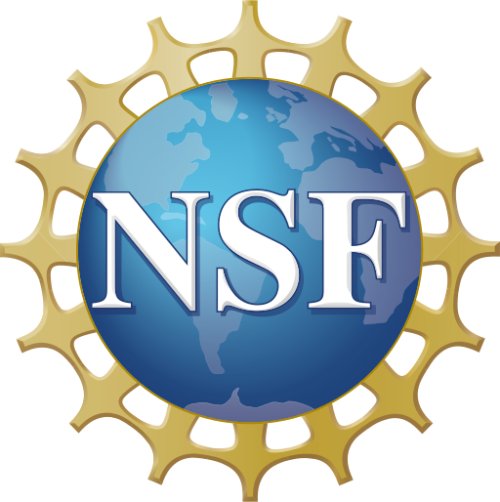
About the National Science Foundation
The National Science Foundation (NSF) is an independent federal agency that supports fundamental research and education in all non-medical fields of science and engineering. NSF's mission is "to promote the progress of science; to advance the national health, prosperity, and welfare; to secure the national defense.”
NSF is organized into eight topical directorates that support research and education across all areas of science:
Proposals sent to NSF are evaluated using two primary merit review criteria:
- Intellectual merit - The potential for the proposed project to advance knowledge and understanding within its own field or across different fields.
- Broader impacts - The potential for the proposed project to benefit society and contribute to the achievement of specific, desired societal outcomes.
NSF Resources
- General NSF Resources
- Program-Specific Materials
- Resources for Early Career Researchers
- Resources for Institutional Training Grants
- NSF NRT - Research Traineeship Programs - This link takes you to our Institutional Training Grants Page
- Resources for Equipment Grants
- NSF MRI - Major Research Instrumentation Grant - This link takes you to our Equipment Grant Resources Page
Please reach out to us if the file you are looking for is not updated for the current proposal call. We will be happy to update it for you!
General Resources
Checklists & Calendars
- NSF Proposal Checklist
- Sample Proposal Workflow Calendar - NSF single institution proposal
- Instructions and Checklist for collaborative submission
Introductory Files
NSF Contacting Program Officers
Research Plan
Supplemental Documents
Data Management and Sharing Plan
- To develop your Data Management and Sharing Plan (DMSP), please visit the UC Davis Library’s highly informative Research Data Management website that will walk you through the process of developing a DMSP using the DMPTool. The California Digital Library’s DMPTool is an online tool containing templates and resources for different agencies and programs and is designed to guide you through the process of creating a DMSP that is compliant with funder requirements.
Ethics Statement/Plan
Facilities, Equipment, & Other Resources
- NSF 01.Facilities, Equipment, & Other Resources Template
- NSF 02.Facilities, Equipment, & Other Resources Sample
- NSF 03.Facilities, Equipment, & Other Resources Education Template
Personnel Documents
- NSF Personnel Checklist Template
- NSF COA template
- NSF SciENcv Tipsheet Biosketch & CPS
- NSF Synergistic Activities Template
Additional Supplemental Documents
- NSF Collaboration Plan template
- NSF Letter of Collaboration Template
- NSF Mentoring Plan Template
- NSF Plan for Safe and Inclusive Working Environment Template
Broader Impacts Resources
General Resources
- Broader Impacts Guidesheet - A printable worksheet to help you develop your broader impacts strategy.
ARIS Broader Impacts Toolkit
- ARIS Broader Impacts Toolkit - This tremendous resource contains a variety of amazing tools to help you develop and evaluate your broader impacts statements.
Broader Impacts Project Evaluation Tool
- Broader Impacts Project Evaluation Tool - The University of Colorado Boulder has developed an interactive Broader Impacts Project Evaluation tool to help you develop a plan for assessing whether your activities were a success.
Program-Specific Materials
Science and Technology Studies (STS)
The Science and Technology Studies (STS) program supports historical, philosophical and social scientific studies of the intellectual, material and social aspects of STEM — including ethics, equity, governance and policy issues relating to scientific theory and practice.
This following materials were created for the standard grant, scholars award, and research community development grant under NSF STS umbrella.
Resources for Early Career Researchers
Early Career Resources (CAREER)
Supports early-career faculty who have the potential to serve as academic role models in research and education and to lead advances in the mission of their department or organization.
About the NSF Faculty Early Career Development Program CAREER award
- We have an extensive collection of NSF CAREER Information and Resources in the Early Career Section of our site.
EArly-Concept Grants for Exploratory Research (EAGER)
The EAGER funding mechanism supports exploratory work in early stages on untested but potentially transformative research ideas or approaches that are considered “high-risk, high-reward.”